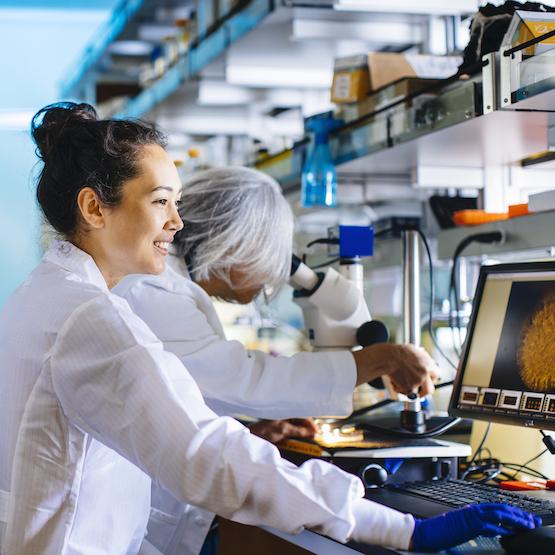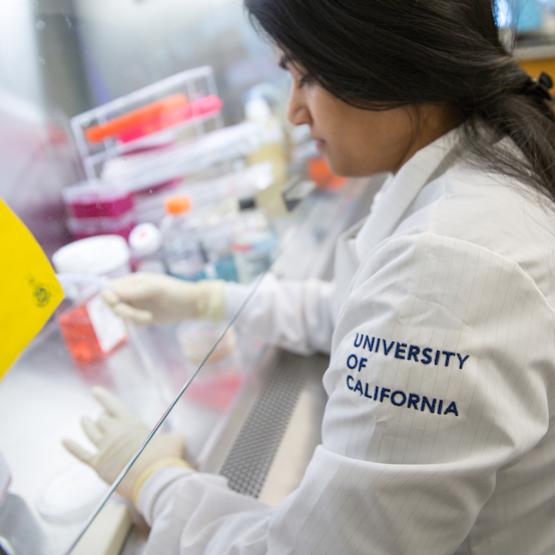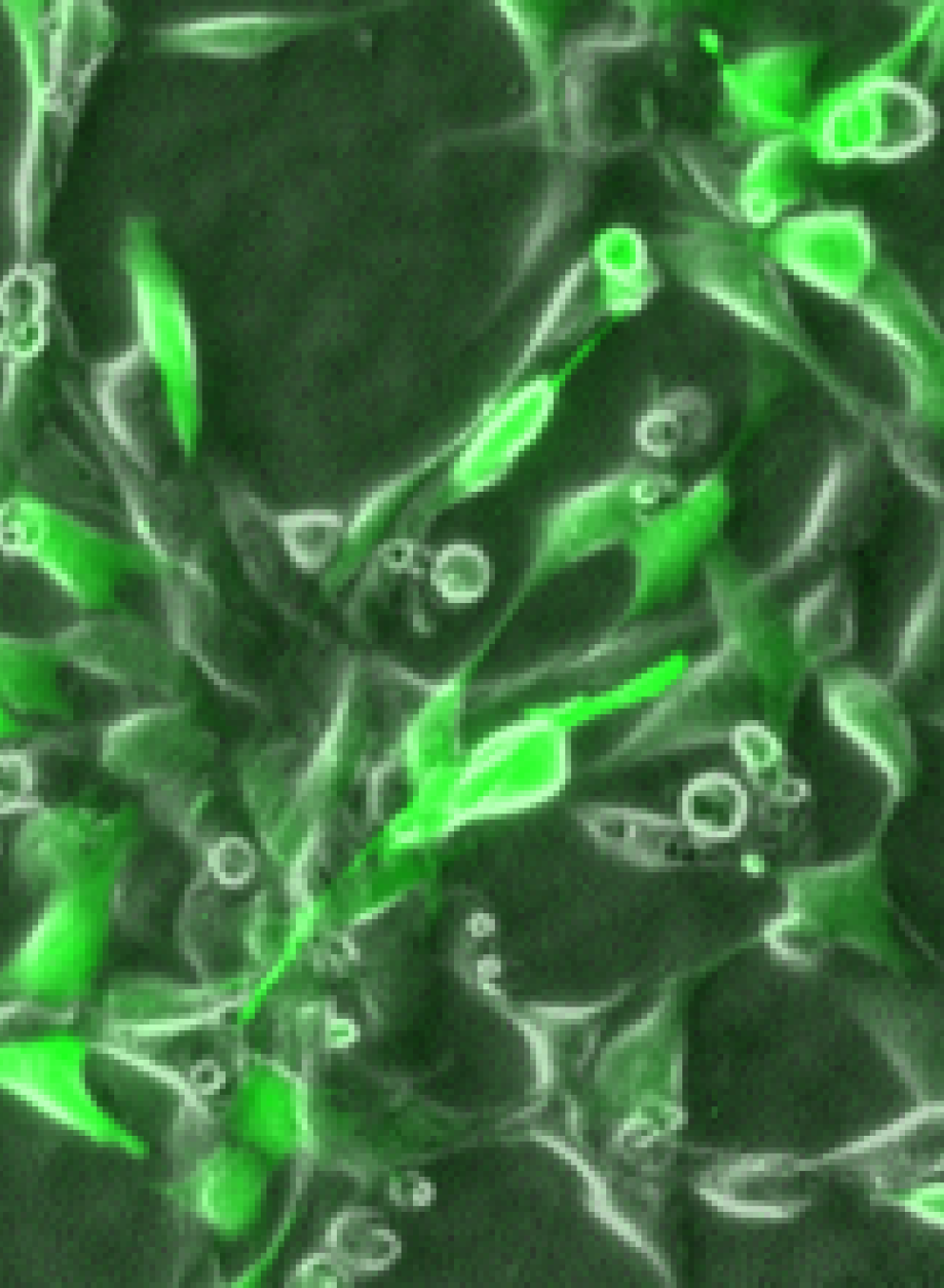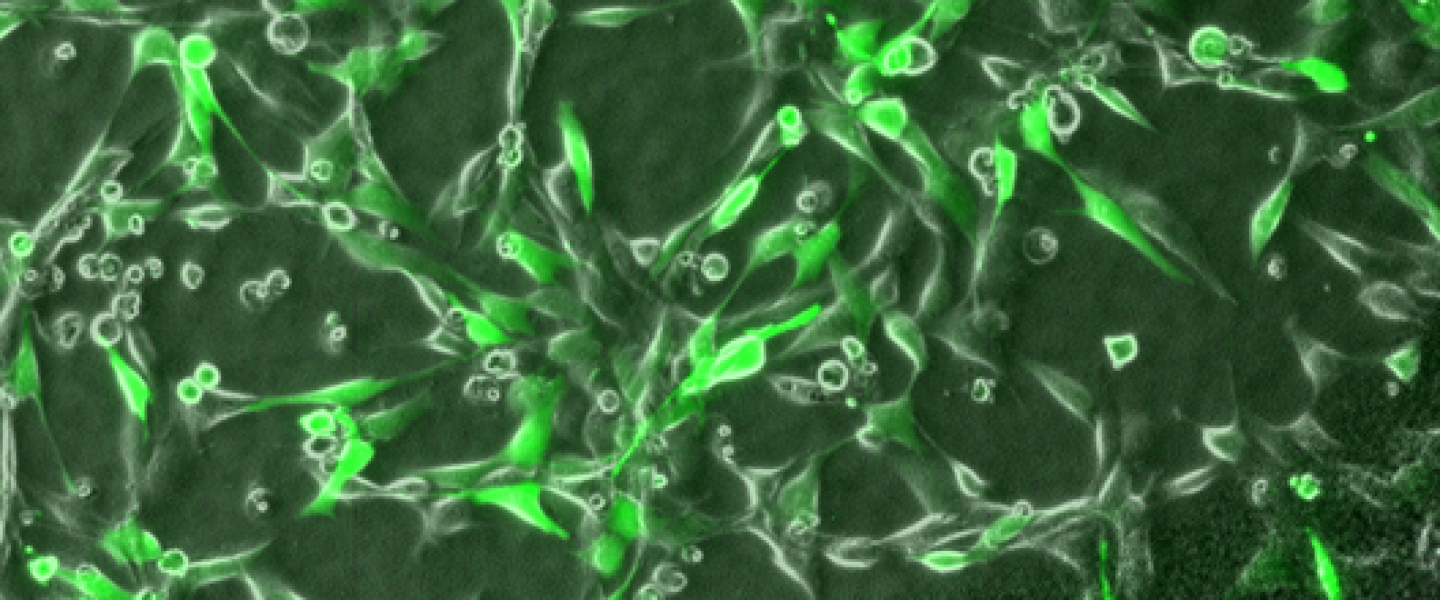- Science & Math
- B.S.
- M.S.
- Ph.D.
- Physical and Biological Sciences
- Molecular, Cell, and Developmental Biology
Program Overview
This is an extraordinary time to be involved in biomedical research. New technologies are rapidly changing our understanding of the molecular and cellular basis of life, with dramatic implications for how we treat human disease. The Department of Molecular, Cell and Developmental Biology, along with Biomolecular Engineering, Chemistry & Biochemistry, Microbiology & Environmental Toxicology, and Physics, is participating in a revolution in biomedical science. A broad spectrum of cutting-edge research tools are being employed to tackle problems in key areas that include: the structural and functional role of RNA in regulation of gene expression; chromatin biology and epigenetic control of genes; cell biology of the cytoskeleton and the cell cycle; decisions controlling embryogenesis and organ development; and developmental neurobiology. The insights generated by this research enable new strategies for treatments of aging disorders, birth defects, neurological diseases, cancer, and other human ailments.

Learning Experience
The department offers a spectrum of courses that reflect the exciting new developments and directions in these fields and trains students to participate in these fields. Students may plan a program that leads to one of several bachelor of science (B.S.) degrees (see also Global and Community Health B.S., Neuroscience, Biology, and Biochemistry & Molecular Biology).
Study and Research Opportunities
Advanced undergraduates, with the guidance of faculty mentors, have access to extensive departmental laboratory facilities for independent research. Many students take advantage of the numerous opportunities with local physicians, health care providers, and biotech companies to gain experience in a real world setting. This array of opportunities for directed independent study enables students to enhance their upper-division programs to reflect and strengthen their own interests and goals.
First-Year Requirements
In addition to the courses required for UC admission, high school students who intend to major in biology should take high school courses in biology, chemistry, advanced mathematics (precalculus and/or calculus), and physics.
The MCDB department has a qualification policy that applies to the molecular, cell and developmental biology B.S.; global and community health B.S.; biology B.S. and neuroscience B.S. majors. For more information about these and other MCDB majors, see the MCD Biology Undergraduate Program website and the UCSC Catalog.

Transfer Requirements
This is a screening major. Junior transfer students who plan to major in the biological sciences must complete the qualification requirements prior to transfer.
Junior-level transfer students are also strongly encouraged to complete a year of organic chemistry, calculus, and calculus-based physics courses prior to transfer. This will prepare transfers to begin their advanced degree requirements and allow time in their senior year for doing research. California community college students should follow the prescribed coursework in the UCSC transfer agreements available at www.assist.org.
Prospective transfer students should review the transfer information and qualification requirements on the MCD Biology Transfer Student website and the UCSC Catalog.


